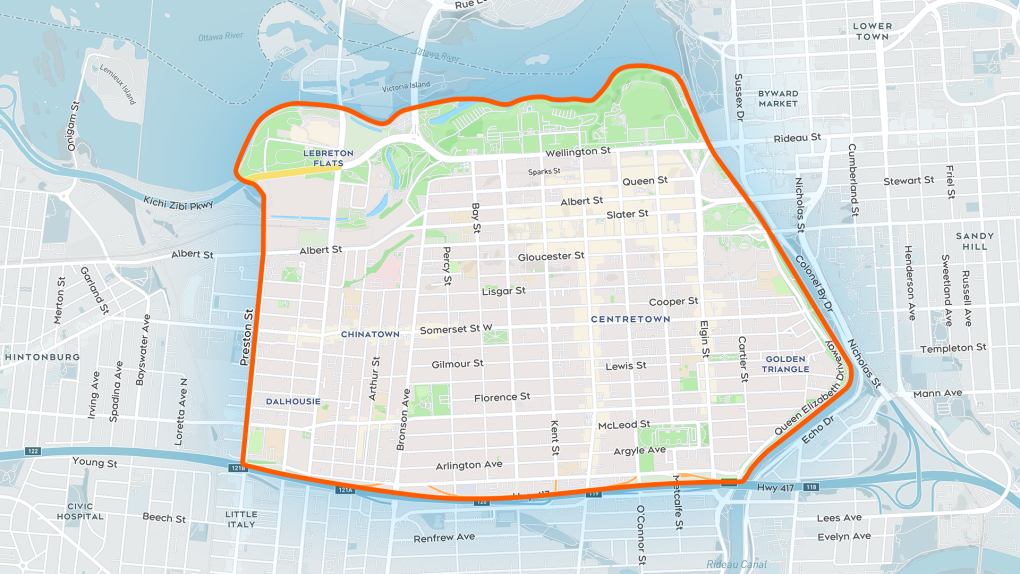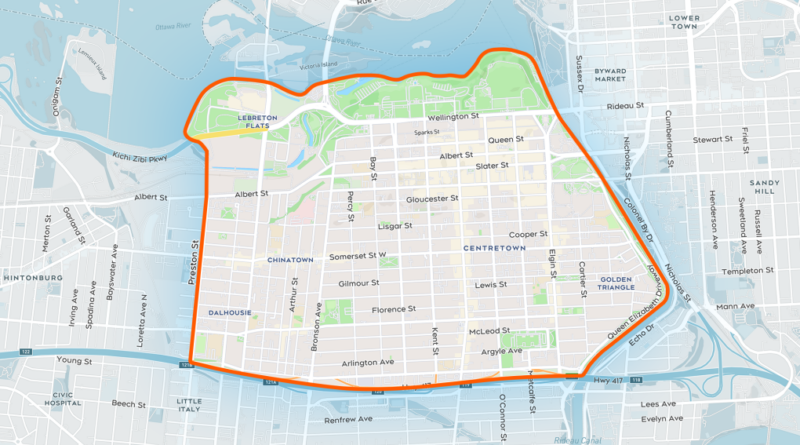Ottawa’s new non-police crisis hotline goes live in Centertown today: Here’s what you need to know
A pilot project to provide teams of social workers who can respond to mental health and substance abuse problems is now underway.
Known as the Alternate Neighborhood Crisis Response Program or ANCHOR, it will give residents the ability to call 2-1-1 to request a crisis hotline for themselves or someone else in a mental health or substance use crisis. drugs in the police area.
“We are starting a new way of serving our community, especially those with mental health or substance abuse problems. This new service will ensure that those in need will receive a response right at the right time, which will undoubtedly lead to better, safer and better outcomes for our citizens,” said Gloucester-Southgate Coun. Jessica Bradley, vice chair of the Public Services Committee at a news conference Thursday. “System change is never easy, and that’s what ANCHOR is; system change.”
The program has already received two calls since it began on Thursday morning.
CTVNewsOttawa.ca takes a look at how the program works:
Where will the program work?
The program will only work in Centretown to begin with. The boundaries are defined by the Ottawa River to the north, the Rideau Canal to the east, Highway 417 to the south and Preston Street to the west.
 The ANCHOR program will operate in Centretown to begin with.
The ANCHOR program will operate in Centretown to begin with.
When will it be available?
Groups will be available 24/7. The program is officially launched at 7 a.m. The pilot project is scheduled for three years. The City of Ottawa says the Aug. 15 represents the start of the two-month demo.
“This demo testing period will provide an important opportunity to gather detailed information about ANCHOR’s operations and crisis response,” said Sarah Taylor, Director of Public Safety, Security, Policy and Evaluation at the Department. of Social and Community Services, by invitation. .
How can I get it?
You can access the ANCHOR program by calling 2-1-1 or 9-1-1. Dispatchers will be trained to monitor the call and request the appropriate equipment; However, 2-1-1 is the number that will be advertised as the number to call for a health assessment, mental health problem, or substance abuse problem. If the call was originally made to 9-1-1, it will be forwarded to 2-1-1, if appropriate.
Calling 2-1-1 will reach community navigators from Community Navigation of Eastern Ontario (CNEO/211 East) who will then dispatch ANCHOR teams.
CNEO executive director John Hoyles says 2-1-1 has been a trusted resource for decades.
“The 2-1-1 service is a trusted source of help for the vulnerable throughout our community. With our past experience with referrals, deploying mobile crisis teams in Centretown is a step forward Our highly trained community dispatchers will take calls from 9-1-1 and directly to 2-1-1. mobile crisis team,” he said. “In cases where dispatch is not appropriate, they will support the caller by connecting them to programs and services.”
When do I call?
The ANCHOR program is designed to respond to non-violent, non-emergency calls when someone is in distress or at risk due to mental illness or substance abuse. This can be the case of a person who is acting irrationally, shouting that they need help or may harm themselves, or someone who is drunk and appears to be in need of help. If it appears that someone needs help, but is not a danger to anyone and does not need the police, the ANCHOR program can respond.
Situations that do not require a response include drug use in the community or people who appear to be homeless who are camping or squatting.
Why is this program being launched?
The project was created to give citizens an opportunity to ask for help that does not involve the Ottawa police. The goal is to have community professionals with expertise in mental health and substance abuse problems respond to such issues, reducing the risk of escalation and freeing the police to deal with situations of public safety. Centretown was chosen as the first site to explore the project due to high community demand, central location, and urban accessibility.
Who are the workers?
The program is led by Centertown Community Health Center in partnership with Somerset West Community Health Centre, with support from Community Navigation of Eastern Ontario/211.
The Centertown Community Health Center says ANCHOR’s crisis response staff is made up of people with “live and lived experiences of mental health and substance abuse, and from ethnic and racial backgrounds.” 2SLGBTQIA+.” They are trained to respond to crises and declines, “with an emphasis on equality and the needs of equality that suits citizens.” The staff speaks a variety of languages, including English, French, Arabic, Cantonese, Swahili and Somali.
“We are building on the foundation of service delivery and response programs that have served Centretown and Somerset West for a long time,” said Somerset West Community Health Center executive director Suzanne Obiorah. “It is built on the knowledge and experiences of many community partners, which we believe is our key to an effective alternative response.”
How much will it cost?
The city of Ottawa said last year that the pilot project will cost $2.5 million in the first year, which includes money for a center that uses a non-9-1-1 number and for a community lead center to answer calls.
The city says it wants $11.5 million over three years from the provincial government as part of the Ottawa-Ontario Deal. The proposal is now with the Provincial government for final sign-off and approval, according to the city’s invitation.
What happens next?
The city has outlined milestones to evaluate the project.
- Six months: focus on the first six months of ANCHOR’s operations, activities and results, and opportunities for quality improvement and sustainability.
- First year: focus on the first year of ANCHOR’s operation during which there will be robust data on experience and outcomes for service users, service providers and the wider community.
- Second and third years: will build on lessons learned from above for continuous quality improvement.
As the program is evaluated, city staff will look at expanding it to other areas.
–With files from CTV News Ottawa’s Natalie van Rooy
#Ottawas #nonpolice #crisis #hotline #live #Centertown #today #Heres
